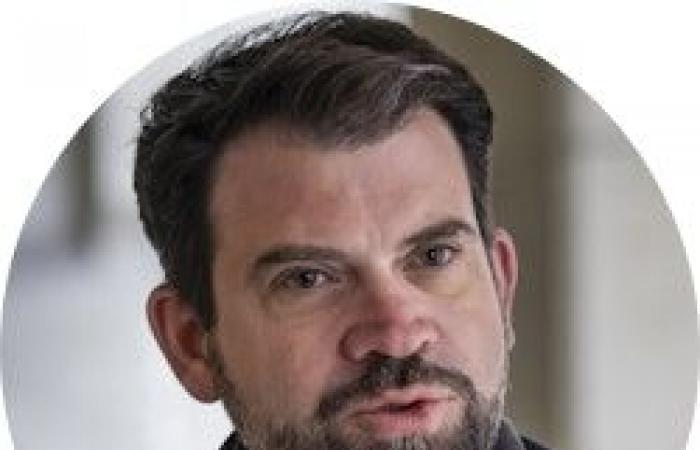Content reserved for subscribers
The new forecasts from the Federal Office of Transport offend Damien Cottier, president of OuestRail. He fears that the entire schedule structure will be undermined.
French-speaking Switzerland does not benefit from the reduction in travel times initially planned in the Rail 2000 package. © Keystone
Published on 06/15/2024
Estimated reading time: 3 minutes
Damien Cottier is back. Barely three weeks after taking the presidency of OuestRail, the French-speaking rail lobby, the Neuchâtel national councilor (plr) is facing the first bad news: the extended travel times in French-speaking Switzerland, announced by the CFF for the 2025 schedule due to multiple planned works, risk serving as a basis for planning beyond 2035.
The Federal Office of Transport (FOT) recently published on its blog a statement of revised projections for rail, adapted according to the strategic choices announced by the CFF. A draft consolidated offer that OuestRail described as “unacceptable” in a press release published Tuesday. Damien Cottier explains why.
What are the main reasons for your dissatisfaction?
Damien Cottier: Promises have been made to us for thirty-five years and we are informed here that they will not be kept. Following the vote on Rail 2000 in 1987, it was agreed that investments would be made in French-speaking Switzerland in order to reduce travel times. The solution which was then favored to achieve these objectives, in particular because it was the least expensive, was the tilting trains, i.e. the ICN on the line at the foot of the Jura and the Wako technology on the Plateau. Now, the SBB is abandoning this technology, ultimately deemed too expensive to maintain. And the OFT is using these extended journeys as the new standard.
Promises have been made to us for thirty-five years and we are informed here that they will not be kept
Damien Cottier
What impact will this have on schedules?
If we take the Lausanne-Berne line, it was agreed in the Rail 2000 program that the journey time would be reduced to around 55 minutes. But the OFT now projects a duration of 68 minutes. We are therefore not talking about a one or two minute difference, but a quarter of an hour. And there are the same problems between Geneva and Bienne or Lausanne and Visp. Such discrepancies have very concrete consequences, particularly on connections. We see this with the 2025 CFF timetable: due to the work, we will lose the connection hub in Lausanne for years, which will affect all of western Switzerland. And according to the OFT, we would plan on this basis for investments beyond 2035. My fear is that we want to favor investments in other parts of the country.
And wouldn’t that be justified?
No, German-speaking Switzerland has already seen numerous investments, and timetables there have been improved. While it is true that major work is currently underway on our side of the Sarine, in reality it is mainly catching up. This therefore does not justify investing less here. With the current OFT project, the entire structure of the timetable in Western Switzerland would be undermined. This is already very restrictive for the work period of the next ten years, but we cannot leave French-speaking Switzerland behind for long. The decisions of the people and parliament must be implemented.
Concretely, what does this “2035 consolidated offer project” from the OFT imply? That the schedules are set in stone until 2035?
Worse, it sets travel time objectives beyond 2035 and, based on this, we will determine what the major priority projects will be in the years to come. However, for us, it would be very important for the modernization of the Romont-Fribourg line, for example, to be included in the list of the next major investments that parliament will vote on in 2026. And studies are also needed for the foot of the line. Jura, where it will be necessary to compensate for the minutes lost after the disappearance of the ICN toggles, as well as for Geneva-Lausanne.
Concretely, who is your message addressed to?
First to the governments of the French-speaking cantons, to whom we say that we must bang our fists on the table now, at the start of the planning process. In parliament, we will certainly be able to influence decisions when voting on specific appropriations, but it is more difficult to influence the content this late in the process. We must therefore act now and raise awareness among the Federal Council.
>ESH Media







